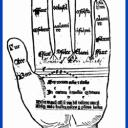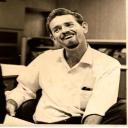Yahoo Answers is shutting down on May 4th, 2021 (Eastern Time) and beginning April 20th, 2021 (Eastern Time) the Yahoo Answers website will be in read-only mode. There will be no changes to other Yahoo properties or services, or your Yahoo account. You can find more information about the Yahoo Answers shutdown and how to download your data on this help page.
Trending News
Composers who have stopped composing too early?
I have been listening today to the music of the famous conductor Igor Markevitch (1912-83, father of Oleg Caetani). Markevitch was one of the most promising composers of the post-Stravinsky generation, yet decided to cease composing altogether in 1941 at the age of 29 (having another 42 years to live).
Are there composers you know about who, for whatever reason, stopped composing long before their deaths?
Rossini and Sibelius are, indeed, obvious candidates, although Rossini did take-up the composition pen again late in life to compose his 'Péchés de vieillesse' (sins of old age), mostly small miniatures, but also a period which included the 'Petite messe solennelle' in 1864.
Another composer who wrote his last work in 1885, aged 37 due to a mental illness called neurasthenia was Henri Duparc. He lived for another 48 years until 1933 without writing another note. This is a tragedy, as Duparc was one of the finest writers of French song ('chanson') I have encountered.
Charles Ives also 'retired' from composition to concentrate on his insurance company empire. He wrote almost nothing after his 'Three Quarter-Tone Pieces for Two Pianos' in 1924. He lived for another 30 years.
Any more?
7 Answers
- MamiankaLv 710 years agoFavorite Answer
I would love to know if you are going to ask a companion question - composers who should have quit while they were ahead; late works that just passed their sell-by date.
Source(s): I knew when *I* should stop composing . . . might start again at some point, but not now. - 5 years ago
Having so little time, this could be short, yet i could not face as much as answering this question... Oh how I want Brahms could have written a clarinet concerto! actual, we've 2 excellent Sonatas, an wonderful Trio, and stylish Quintet, yet i've got oftentimes puzzled what a concerto could have appeared like from him. Berio tried to orchestrate the F Minor Sonata for clarinet and orchestra regardless of the undeniable fact that it only would not artwork ok in any respect. And for Petr B, i could want to cost composers to jot down for me. If only i could win the lottery, i could! it relatively is perplexing to discover sufficient funds, for appropriate composers receive around $one thousand in keeping with minute of finished composition. this is likewise why orchestras, a minimum of contained in the U.S., don't have extra compositions written. it relatively is high priced. So then we glance ahead to composers to receive provides, and whilst they receive provides they don't oftentimes write issues that any one desires to pay attention. it relatively is an excellent issue and one that is suggested oftentimes. Minnesota Composers communicate board has engaged some great composers who've written thrilling cloth, yet that variety of team is uncommon.
- Yahoo! itLv 610 years ago
Rossini immediately springs to mind. He didn't quit composing altogether, but he gave it up as a full-time vocation. His final major work was his Stabat Mater completed in 1832 and his final opera, Guillaume Tell, completed in 1829 at the age of 37, a mere year older than Mozart was when he died and almost 40 years before his own death.
On the other hand, he was extremely prolific in his active years anyway.
- Fred TLv 510 years ago
Rimsky-Korsakoff didn't stop composing but he had an interesting crisis or composer's block that perhaps sheds light on the issue. He was one of the gang of 5 Russian composers (I'm writing this all from memory without looking at sources). He had several successes but decided he needed to firm up his music theory because he thought it would make him a better composer. A Russian conservatory made him a professor before he was ready, and he was taking musical theory classes at the same time he was teaching music! When he had mastered the analytical part of music, namely theory, he found that it paradoxically had the opposite effect on his ability to compose. He lost the intuitive muse, or inner voice or inspiration, that he once had. The musical ideas didn't from flow to him through analysis, but through intuition. So he had a lull in his compositional output; fortunately he was able to pull himself out of the slump and begin composing again with an effective balance between the analytical and the intuitive, but a lesser individual with this artistic crisis may have quit. In fact, Rimsky-Korsakoff helped other composers such as Mussorgsky with his broadened and deep knowledge of music theory. What's also interesting about Rimsky Korsakov is that he had a long-time friend and biographer who wrote a very detailed and anecdotal account of his life, with his friend purposively recording conversations during his visits. Another prominent example of this from non-modern times is Boswell's biography of Samuel Johnson. Rimsky Korsakov also became a master of instrumentation due to his musical job with the Russian government that caused him to be very familiar with all the instruments. We see that with Capriccio Espagnol. But I think we would need a close friend who had been observing Igot Markevitch to see what artistic block, etc may have occured at age 29. Maybe he ran out of intuitive inspiration and musical ideas and didn't have the theory to sustain himself; maybe he developed new interests; maybe he didn't want the pressure of what others might expect from him so that he couldn't be genuine to his muse. There are one work wonders or artists in the twentieth century. One is Bobby Pickett who composed the Halloween classic, Monster Mash Song. The other is the writer, Harper Lee, author of To Kill a Mockingbird. As Herman Melville said in one of his poems, wrestling with the angel art is a very difficult proposition, especially to wrestle all your life.
- How do you think about the answers? You can sign in to vote the answer.
- 10 years ago
Hi Del, I personally think they were phased by the new composers, and suspected [wrongly[ they
had become out of fashion. What a waste! Still waiting for my education on Mahler. M.
- AlberichLv 710 years ago
Alexander Borodin doesn't exactly qualify, but I do feel strongly/WISH, that he had devoted himself much more to composing than he did; I personally think he in no way realized his potential.
Granted, women in pursuit of medical careers greatly benefited from his endeavor to promote and advance their interests in this arena; but we as CM lovers, suffer from the consequences.
Alberich
DITTO: "Mamianka.."
- SkuaGirlLv 610 years ago
Sibelius must be the most obvious candidate - almost 30 years of nothing. Then again, I don't think he had anything else to say. He knew when to stop.







